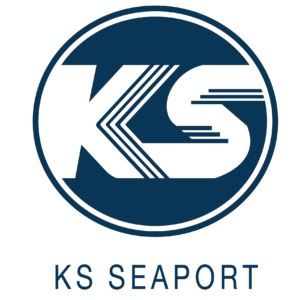The marine sector significantly depends on the proficiency of ship brokers to traverse the intricate realm of shipping transactions. Ship brokers play a crucial role in the shipping sector by linking shipowners with charterers and completing various transactions that ensure the continuous movement of goods worldwide. This blog explores the diverse and complex responsibilities of ship brokers, their indispensable contribution to international commerce, and the forthcoming problems and opportunities.
The Crucial Function of Ship Brokers
Ship brokering mostly involves offering specialized market analysis and acquiring intelligence. Ship brokers are informed on worldwide trade patterns, marine rules, and economic data in order to provide their clients with the most favorable agreements. The capacity to assess the fluctuations and patterns within the maritime sector renders them vital to both shipowners and charterers.
Chartering services are a substantial component of a ship broker’s overall portfolio. Brokers facilitate the process of negotiating between shipowners and charterers, ensuring that both parties achieve agreements that are advantageous to both parties. The individuals possess a high level of proficiency in formulating charter party agreements for many charter categories, such as time, voyage, and bareboat charters, with each agreement customized to address the unique requirements of the given transaction.
Within the domain of sales and purchase (S&P) transactions, ship brokers are responsible for overseeing the acquisition and disposition of maritime vessels. This procedure entails thorough due diligence, valuation of the vessel, and negotiation. Ship brokers possess specialized knowledge in these domains, guaranteeing seamless and effective transactions that protect their clients’ interests.
Ship brokers also offer operational support, which is a crucial service. Brokers are responsible for managing voyage directions, laytime estimates, and demurrage claims after the chartering process, providing continuous assistance to shipowners and charterers. The all-encompassing nature of brokerage services highlights the diverse and versatile responsibilities of ship brokers within the maritime sector.

The additional value provided by ship brokers
Ship brokers possess a substantial amount of competence and a thorough understanding of the market. Their extensive knowledge of market valuation, trends, and legal elements of shipping transactions gives their clients a distinct advantage over the competition. In addition, the broad networks and relationships of ship brokers in the marine business enable the connection of the appropriate parties, resulting in successful transactions.
One notable benefit of involving ship brokers is the minimization of risks. Their adeptness in negotiation and meticulous documentation mitigate transactional and operational risks, offering clients a sense of tranquility. This proficiency is especially advantageous in an industry as unpredictable and intricate as shipping.
Overcoming Obstacles
Market instability, which is a result of global economic conditions and geopolitical events, is one of the many challenges that Ship brokers face. The progress in technology brings up both advantages and difficulties, since digital platforms and blockchain technologies are transforming conventional brokering methods. Furthermore, the inclusion of regulatory compliance with international marine laws and environmental standards introduces an additional level of intricacy to their professional endeavors.

Future Prospects of Ship Brokering
The integration of technology holds significant potential for the future of ship brokering. Implementing digital tools, artificial intelligence, and data analytics will improve the effectiveness and precision of brokerage services. There is a rising emphasis on sustainability and environmental factors, particularly in relation to eco-friendly ships and sustainable procedures in shipping transactions.
The adaptation of ship brokers to evolving global trade dynamics is necessary in response to shifting trade patterns and the evolving demands of the maritime industry. Their capacity to develop and adopt novel technology will be crucial for their ongoing significance and triumph.
Conclusion
Ship brokers’s profound expertise, extensive market knowledge, and extensive network render them indispensable collaborators in the shipping business. They possess the ability to effectively handle several hurdles, including market volatility, technical advancements, and regulatory compliance, ensuring their success in the industry.
Ship brokers will remain crucial in facilitating global economic connections through maritime trade as the business progresses. Their counsel and knowledge are essential for anyone involved in the maritime business, including shipowners, charterers, and other stakeholders. Interacting with them not only guarantees effective and knowledgeable shipping transactions but also enhances the seamless functioning of worldwide trade networks.












